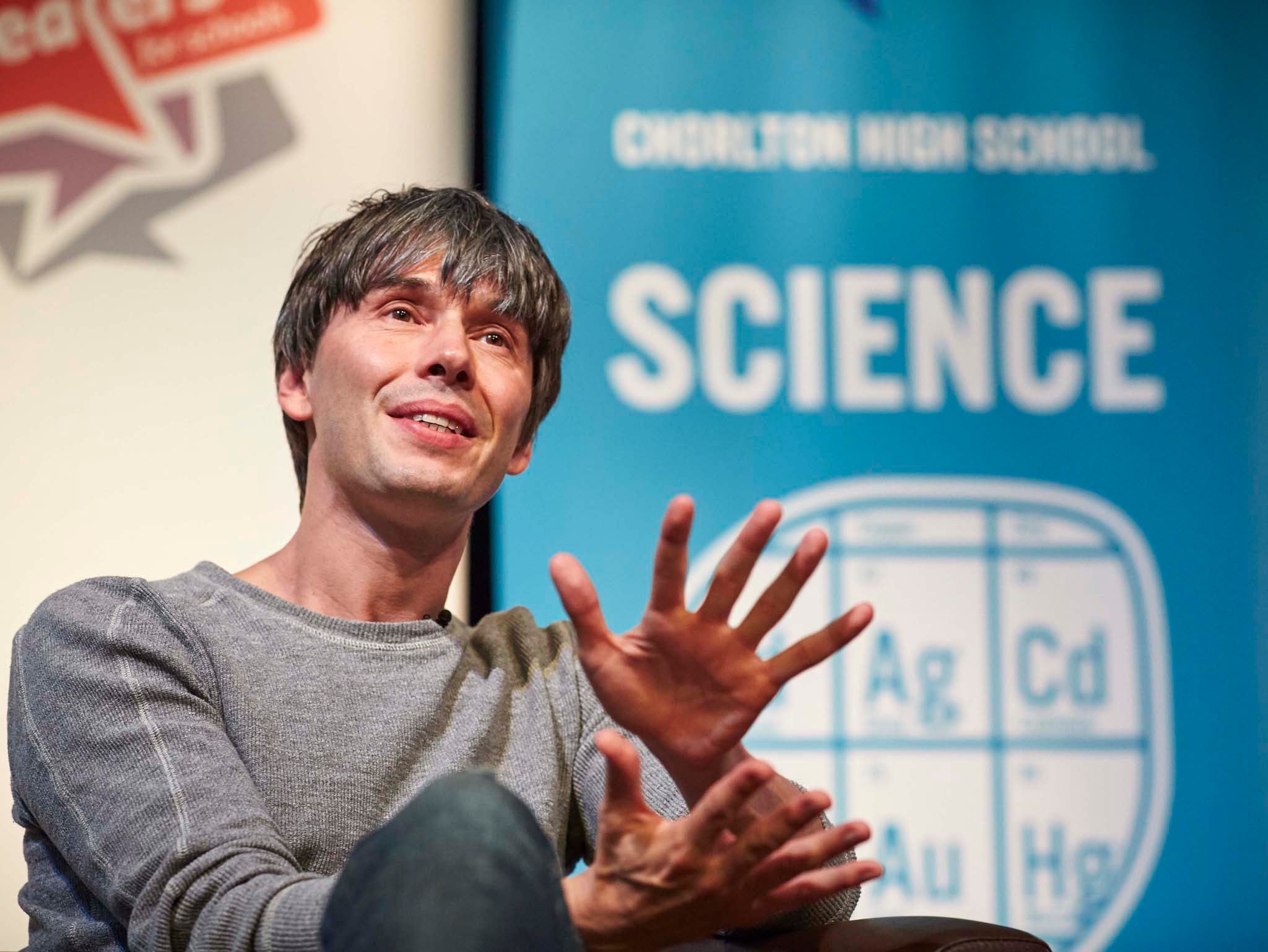Professor Brian Cox 'would go into space' on a commercial flight, despite Richard Branson's Virgin Galactic tragedy
Speaking at a scientific discovery event in Manchester, he added that there’s “no reason” we won’t see commercial space travel “in the next 10 years”

Your support helps us to tell the story
From reproductive rights to climate change to Big Tech, The Independent is on the ground when the story is developing. Whether it's investigating the financials of Elon Musk's pro-Trump PAC or producing our latest documentary, 'The A Word', which shines a light on the American women fighting for reproductive rights, we know how important it is to parse out the facts from the messaging.
At such a critical moment in US history, we need reporters on the ground. Your donation allows us to keep sending journalists to speak to both sides of the story.
The Independent is trusted by Americans across the entire political spectrum. And unlike many other quality news outlets, we choose not to lock Americans out of our reporting and analysis with paywalls. We believe quality journalism should be available to everyone, paid for by those who can afford it.
Your support makes all the difference.Are we set to see Professor Brian Cox go where no TV presenter has gone before? The celebrity physicist has revealed to i that he is willing to pay to go into space – despite the Virgin Galactic tragedy on 31 October that left one pilot dead.
Speaking after a talk on the future of scientific discovery in Manchester, Prof Cox added that there’s “no reason” we won’t see commercial space travel “in the next 10 years, or likely sooner than that”.
“Virgin Galactic, not withstanding the problem they had with their test program, are close, I think,” he said.
The event at Chorlton High School was organised by Speakers for Schools, a charity that organises talks from leading professionals and academics to state secondary students.
“For Human Universe, I did some training,” he told i. “I floated about in a spacesuit for a while in Russia and I’ve still got sore ribs, eight months after spending three and a half hours doing some astronaut training.
“But I know that the commercial space flights are much less hard than that. You basically just sit there and have a great view. So in that sense, I would go into space. But I don’t underestimate how being an astronaut is bloody hard work.
He also called on the government to increase funding for space exploration, saying that the recent touchdown of the Philae lander on a comet will have created a ‘Rosetta generation’.
“We don’t invest enough, it’s clear, in space exploration,” he said. “There’s a problem at the moment with the big missions, like Cassini, that America don’t seem to be able to fund some of those, which is hugely problematic.
“They’re immensely cost-effective. They’re relatively cheap and provide vast amounts of return. If you look at Rosetta, it’s not an expensive thing to do when it’s spread over 10 years with this tiny amount of money from the European Union and ESA. But the impact has been incalculable.
“Somebody will study it at some point. And I bet you there will be hundreds or thousands of new scientists and engineers out there in the economy generating loads of wealth, based on it. There will be a ‘Rosetta generation’”.
He went on to express concern over the lack of social mobility facing young people today, saying that he had been the first in his family to go to university and that his grandfather had been a cotton mill worker.
“I was the first person in my family to go university in my family and there’s loads of people my age who were the same. My dad was the first to do A-levels and my granddad worked in a cotton mill. The 20th-century is full of people like that: generations doing a little bit better than the last. I worry that that line is not working properly, some of it is policy but a lot of it is information.”
Speaking specifically about how to engage less well-represented groups in the STEM industries, he said it’s about ‘showing them the path’.
“It’s about getting into schools and saying ‘if you want to do this, it is for you and here’s the way to do it. You can do it, irrespective of your background or the wealth of your parents. These are the things we’ve put in place so if you want to go to university, if you want to do a PhD, this is the route’,” he said.
Join our commenting forum
Join thought-provoking conversations, follow other Independent readers and see their replies
0Comments